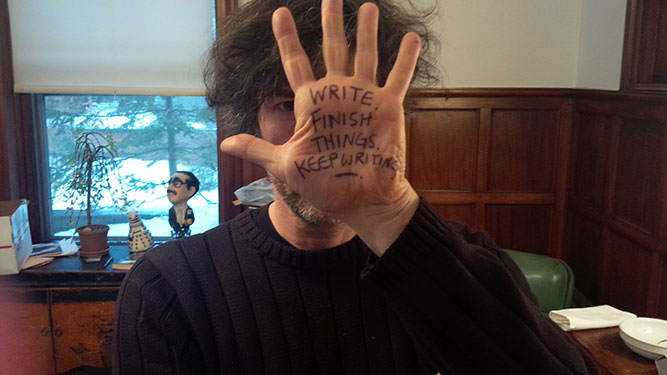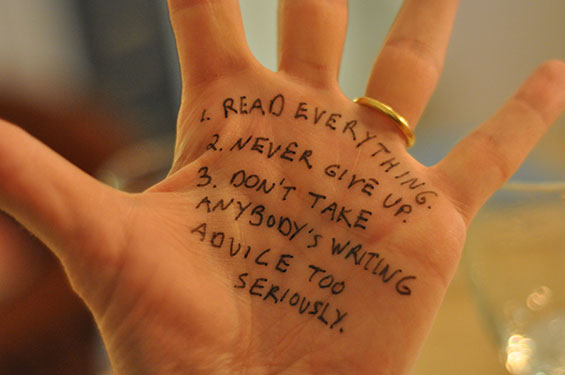As I have mentioned before I didn't discover Elizabeth Gilbert through her books, but rather through TED. I find her to be charming and witty in a way that motivates. In an essay for the wonderful Bookish site, quoted above, she takes Philip Roth to task for telling a newly published author who was waiting on him (Mr. Tepper above) the following:
"I would quit while you're ahead. Really. It's an awful field. Just torture. Awful. You write and you write, and you have to throw almost all of it away because it's not any good. I would say just stop now. You don't want to do this to yourself. That's my advice to you."




